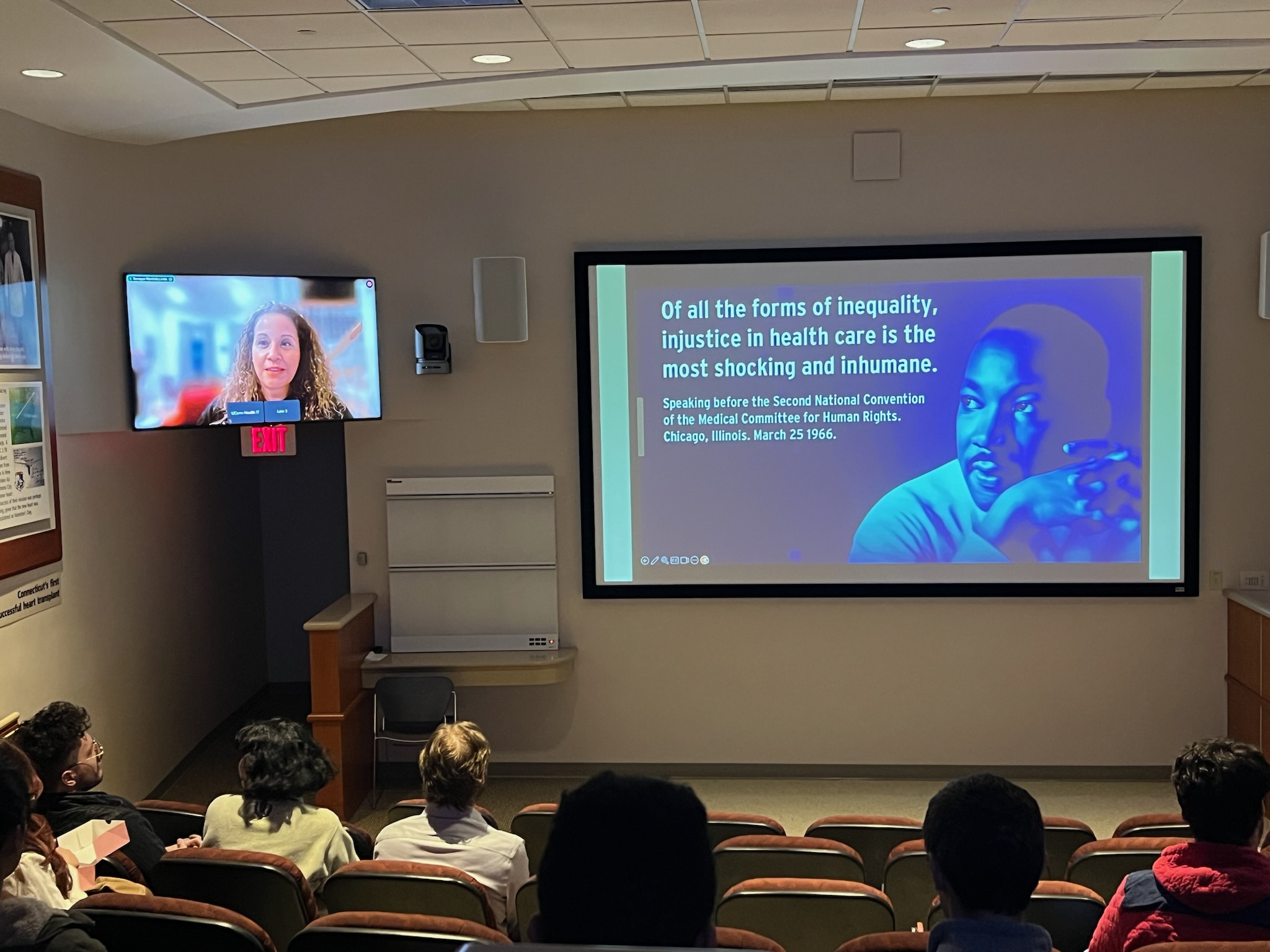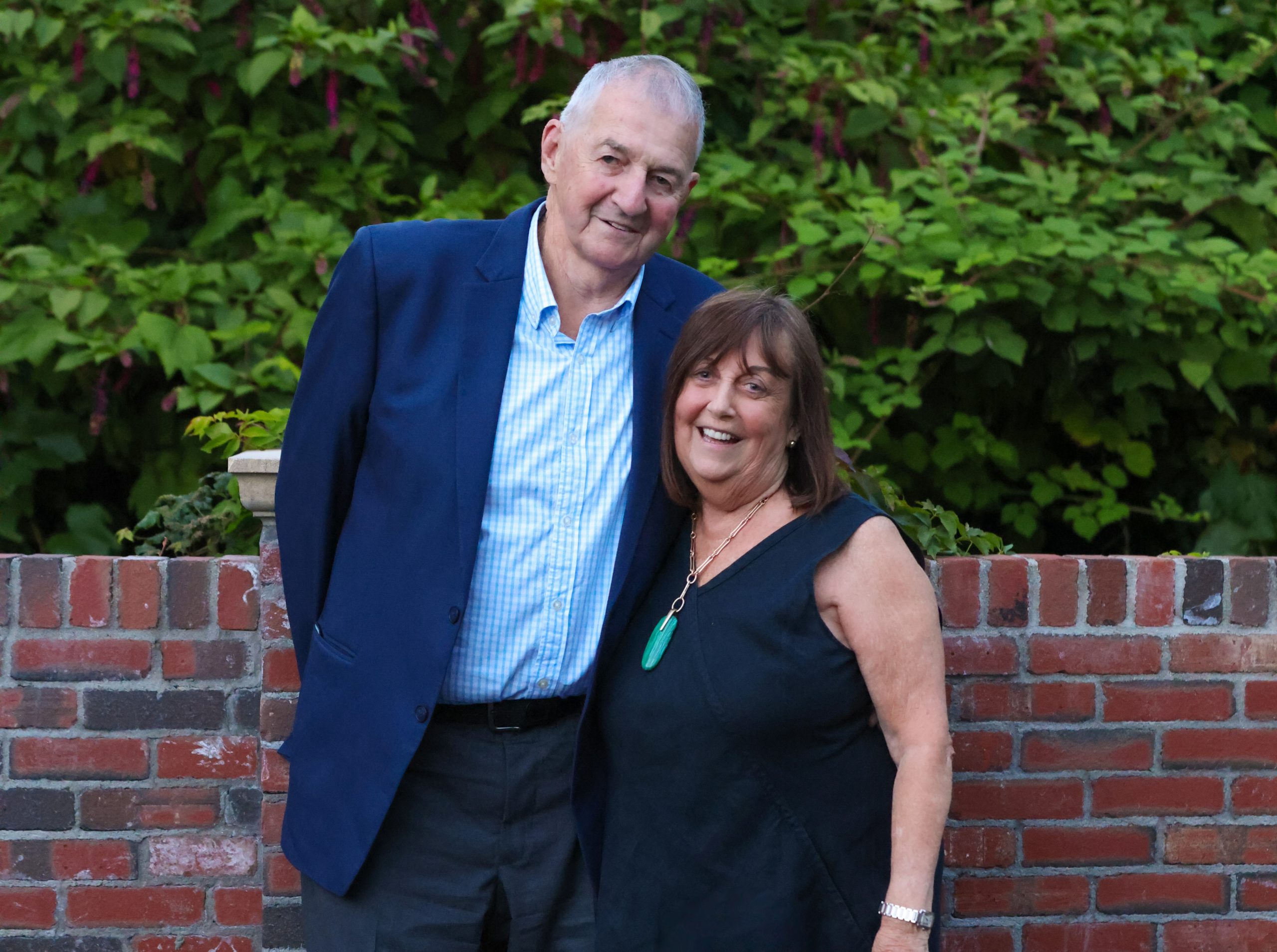COVID-19 has scourged the world for more than a year, but we still don’t know why the disease is so much deadlier for many older adults and for those with chronic diseases. Now, a team of researchers from UConn Health and The Jackson Laboratory (JAX) are using the COVID vaccines as a window into why the virus gets more dangerous the older we get.
“Being over the age of 65 increases your risk of dying from COVID 400 times compared to someone in their 20s. And if you also have chronic diseases, your risk is even higher,” says UConn Center on Aging Director George Kuchel. Kuchel and Dr. Jacques Banchereau, professor and director of immunological sciences at The Jackson Laboratory for Genomic Medicine, are beginning a study to determine why older adults are so much more at risk than younger people.
Leveraging their years of NIH-funded research that examines older adults’ response to varied vaccines such as influenza, the investigators are tracking volunteers from three distinct age ranges: 21-49 years old, 50-64, and 65+. The age ranges were chosen to reflect the changes in the immune system that begin in late middle age. To join the study, you need to be a healthy adult who hasn’t yet been vaccinated against COVID-19, but has scheduled an appointment to do so. Volunteers for the study will be asked to give a little blood before they get vaccinated and have their noses swabbed, and then come back again to do the same thing a few weeks afterwards. The researchers hope the volunteers will help them understand how the immune system changes from interacting with the vaccine—and by analogy, from interacting with SARS-CoV-2, the virus that causes COVID-19.
“This research will provide important insights about the way vaccinations affect the immune system in adults of various ages,” says Banchereau. “We hope that these findings will help in the fight against COVID-19, as well as help with future studies on immunity and vaccinations. We feel incredibly fortunate to be partnering with UConn Health in this important work.”
In an ecosystem, you can never change just one thing. Our bodies are ecosystems, and the COVID vaccine makes us more resilient to the virus that causes COVID. The investigators are especially interested in examining the possibility that older adults may not respond to this vaccine in the same way as younger individuals. For example, based on studies with other vaccines, older people might not have as strong a response. Will they produce as many antibodies, and keep those antibodies circulating for as long as younger people do? Will they need to get booster shots, like we do with the flu, or will the immunity be long lasting?
It is also possible that organisms that normally live inside our noses may influence how well the vaccine works. The vaccine may somehow alter the tiny ecosystem inside our noses, and the organisms that live there may change in turn.
The researchers will analyze individual immune cells in the blood of the volunteers and look for differences between the immune cells in older versus younger volunteers. They will also look for changes in the nose’s ecosystem that take place with age. The goal is to find clues as to what makes some people more or less susceptible to the virus that causes COVID-19.
The researchers hope the knowledge generated from the study will be useful to evaluate the potential of novel types of vaccines or other treatments to be developed against other diseases, including other emerging infectious agents and possibly cancer.
The study is enrolling now. Anyone interested in participating should contact the UConn Center on Aging, (860) 679-3043, email Megan Wing, wing@uchc.edu or call JAX study coordinators at 860-837-2404.



